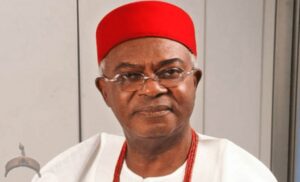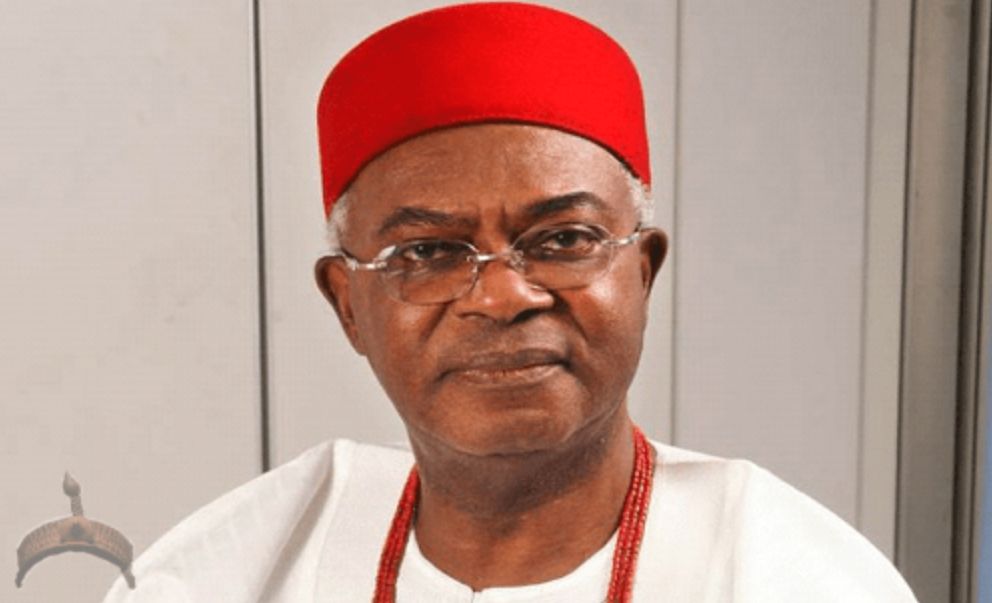Are you wondering if the title “Obi of Onitsha” is traditional or a modern one? This guide looks into the history of this title, the Obis’s responsibilities, and their influence in the region.
Let’s learn.
READ ALSO: The History of Military Rule in Nigeria
Is Obi Of Onitsha A Traditional Title?
Yes, Obi of Onitsha is a traditional title. In Nigerian Igbo culture, traditional titles are positions of honor given to people who’ve accomplished a lot or achieved a high status within their community.
These titles are often passed down from fathers to sons and come with special duties and privileges. The Obi of Onitsha is one of the most respected traditional titles in Igbo land.
It’s the title granted to the king of the Onitsha people, a major cultural and commercial center in southeastern Nigeria. The Obi is considered both a spiritual and political leader and his influence reaches past Onitsha to contain the wider Igbo community.
What Is The Role Of The Obi Of Onitsha?
The Obi function as the keeper of Onitsha’s rich traditions and customs. They ensure these practices are passed down to future generations, protecting the cultural identity of the Igbo people in Onitsha.
The well-being of Onitsha is a top priority for the Obi as they play a major part in promoting peace and resolving conflicts within the community.
Additionally, the Obi encourages economic development by supporting initiatives that create jobs and improve the lives of Onitsha residents.
The Obi is seen as a link between the living, the ancestors, and the gods. You will see them performing important ceremonies and rituals to honor the traditions and appease the spirits, seeking blessings for the community.
Also, the Obi represents Onitsha on a regional and national level. They engage with other Nigerian leaders, cooperating and advocating for the interests of the Onitsha people.
The Obi’s influence and respect contribute to the wider recognition of Onitsha’s cultural significance. In all, the Obi is a unifying figure for the people of Onitsha, representing the community’s spirit and heritage, and promoting shared identity among Onitsha citizens.
READ ALSO: Politicians Who Have Been Senate Presidents in Nigeria Till Date
Who Is The Current Obi Of Onitsha?

The current Obi of Onitsha is Nnaemeka Alfred Achebe. He was born on May 14, 1941, in Onitsha, Anambra State, Nigeria.
Achebe became the 21st Obi of Onitsha on May 14, 2002. He had a successful career, including serving as a director in various companies within the Royal Dutch Shell Group before he became a traditional ruler.
Achebe is highly educated, having earned a Bachelor of Science degree in chemistry from Stanford University and a master’s degree in Business Administration from Columbia University.
He also attended the Senior Executive Course of the National Institute for Policy and Strategic Studies. Achebe held influential positions in both corporate and social sectors. having served on the governing councils of various organizations, including the Petroleum Training Institute and the Nigerian Employers’ Consultative Association.
He was also involved in panels of inquiry in the petroleum sector and represented Nigeria’s interests in bilateral and multilateral relations.
Achebe has a strong commitment to education and community development. He established a manpower development trust fund for his community to ensure that every child has access to quality education.
In addition, he has also been involved in promoting partnerships between universities in the US and Nigeria. For his contributions to society, Achebe has received several honors and awards including the National Honour of Commander of the Order of the Federal Republic (CFR).
READ ALSO: Nigerian Presidents From 1960 Till Date
How Is The Obi Of Onitsha Selected?
Unlike positions filled through voting, the Obi of Onitsha isn’t chosen by the people. Instead, the title is passed down through generations within a specific family, following a tradition known as hereditary succession.
The position goes to a descendant of the founder of Onitsha, Eze Chima. These children are called Umuezechima, which translates to “Children of Eze Chima.”
This hereditary system has deep roots in Onitsha’s history. The Obi is a constant reminder of the community’s heritage and traditions.
Choosing a new Obi from the established lineage ensures a strong connection to the past and continuity for the people of Onitsha.
However, heredity doesn’t necessarily mean the eldest son automatically becomes the Obi. There may be specific requirements within the family lineage to determine who qualifies for the position.
Additionally, the new Obi requires the approval or recognition from a council of elders and the state and federal government of Nigeria.
List Of Past And Present Obi Of Onitsha
Here is a complete list of the past, and current Obi of Onitsha from the mid-16th century to the present:
No | Obis of Onitsha | Reign |
|---|---|---|
1 | (Eze) Chima | Mid-16th century |
2 | Oreze | 16th–17th century |
3 | Chimaevi | 17th century |
4 | Chimukwu | 17th century |
5 | Chimaezi | 17th century |
6 | Nafia | 17th century |
7 | Tasia | 17th century |
8 | Eze Aroli | 17th–18th century |
9 | Chimedie | 18th century |
10 | Omozele | 18th century |
11 | Ezeolisa | 18th century |
12 | Ijelekpe | 18th–19th century |
13 | Udogwu | 1820 |
14 | Akazue | 1840–1873 |
15 | Diali | 1873–1874 |
16 | Anazonwu | 1874–1899 |
17 | Samuel Okosi | 1901–1931 |
18 | James Okosi | 1935–1961 |
19 | Joseph Okwudili Onyejekwe | 1962–1970 |
20 | Ofala Okechukwu Okagbue | 1970–2001 |
21 | Alfred Achebe | 2002–present |
Reference Sources:

